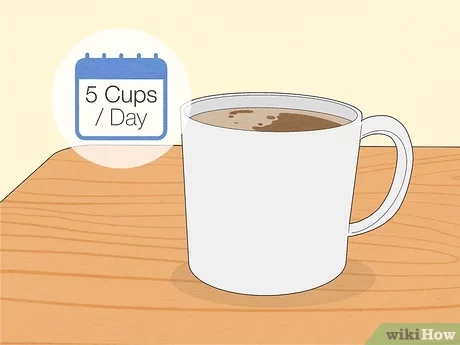Coffee is loved for its rich flavor and energy boost. But it often causes an urgent need to poop.
Many coffee drinkers face this inconvenient side effect. It can disrupt your day and cause discomfort. You might wonder if there’s a way to enjoy your coffee without the rush to the restroom. Good news! There are several strategies to reduce coffee’s laxative effect.
This blog will explore easy and effective tips to help you enjoy coffee without the unwanted bathroom trips. Let’s dive into how you can make your coffee experience more comfortable and less stressful.
.jpg)
Credit: www.dripshipper.io
Introduction To Coffee’s Laxative Effect
Many people love starting their day with a cup of coffee. It wakes you up and helps you focus. Yet, many also find that coffee makes them poop. This is known as coffee’s laxative effect. Understanding why coffee affects your digestion can help you manage this issue.
Why Coffee Affects Digestion
Coffee contains caffeine, a natural stimulant. Caffeine speeds up your digestive system. This results in a quicker trip to the bathroom. Coffee also has compounds that stimulate the stomach lining. This can increase stomach acid, leading to a laxative effect.
Besides caffeine, coffee contains other compounds. These include chlorogenic acids and N-alkanoyl-5-hydroxytryptamides. Both can impact your digestion. They can make your stomach produce more acid. This can speed up the digestive process, causing the urge to poop.
Common Reactions To Coffee
People react differently to coffee. Some may feel the urge to poop within minutes. Others may not feel any effect at all. Common reactions include stomach cramps, gas, and diarrhea. These reactions are more common in people with sensitive stomachs.
Many people find that drinking coffee on an empty stomach worsens these symptoms. Eating something before your coffee can help. It can slow down the digestive process and reduce the laxative effect.
Switching to decaf coffee might also help. Decaf still has some caffeine, but much less. This can reduce the urgency to poop.

Credit: www.wikihow.com
Adjusting Your Coffee Intake
Adjusting your coffee intake can help reduce the need to visit the bathroom frequently. By making a few changes to how you consume coffee, you can enjoy your favorite drink without the inconvenience. Here are some effective strategies to consider.
Moderating Coffee Consumption
Consuming less coffee can make a big difference. Start by reducing the number of cups you drink each day. Instead of drinking three cups, try two. This simple change can help your body adjust better.
Space out your coffee consumption. Drink one cup in the morning and one in the afternoon. This gives your digestive system time to process the caffeine.
Switching To Decaf
Switching to decaf can help if caffeine is the main issue. Decaf coffee contains much less caffeine. This makes it a good alternative for those sensitive to caffeine.
Mix regular coffee with decaf to gradually reduce caffeine intake. This can help your body adapt without a sudden change.
Remember, decaf still has some caffeine. But it’s much less likely to cause digestive issues.
Choosing The Right Coffee
Choosing the right coffee can help reduce the need to rush to the bathroom. The type of coffee you drink affects your digestive system. Here are some tips to help you choose the right coffee.
Opting For Low-acidity Coffee
Low-acidity coffee is gentler on your stomach. High-acidity coffee can irritate your gut and speed up digestion.
Here are some low-acidity coffee options:
- Cold brew coffee
- Dark roast coffee
- Brazilian coffee beans
These options can help you enjoy your coffee without discomfort.
Trying Different Brewing Methods
Brewing methods affect the acidity and strength of your coffee.
| Brewing Method | Benefits |
|---|---|
| Cold Brew | Lower acidity, smoother taste |
| French Press | Full-bodied, less bitterness |
| Aeropress | Control over strength and flavor |
Experiment with these methods to find what works best for you.
Remember, the right coffee can make a big difference.
Timing Your Coffee Consumption
Coffee has a reputation for making people rush to the bathroom. Timing your coffee consumption can help manage this effect. By paying attention to when and how you drink your coffee, you can enjoy it without the urgent need to find a restroom.
Best Times To Drink Coffee
The timing of your coffee can make a big difference. Drinking coffee right after waking up may not be the best idea. Your body produces cortisol, a natural alertness hormone, in the morning. Having coffee then can reduce its effectiveness. Wait an hour after waking up before having your first cup. This allows your body to wake up naturally.
Afternoon coffee can also be tricky. Caffeine stays in your system for about six hours. Drinking coffee too late can affect your sleep. Aim to have your last cup by mid-afternoon.
Avoiding Coffee On An Empty Stomach
Drinking coffee on an empty stomach can make you poop faster. Food acts as a buffer, slowing down the digestion process. Have a light snack or breakfast before coffee. This helps your stomach handle the caffeine better.
Try pairing your coffee with fiber-rich foods like fruits or whole grains. These foods can slow digestion and reduce the need to poop urgently. Avoid sugary snacks, as they can speed up digestion and worsen the problem.
Pairing Coffee With Food
Many coffee lovers struggle with the laxative effect of coffee. Pairing your coffee with the right foods can help. Let’s explore how eating certain foods can make your coffee experience smoother and more enjoyable.
eating Before Drinking Coffee
Eating before drinking coffee can be a game-changer. An empty stomach reacts strongly to coffee. The acid in coffee can irritate your stomach lining, leading to discomfort and a faster trip to the bathroom.
Having a small meal or snack before coffee can help. This provides a buffer for your stomach and slows down digestion. Consider eating a piece of toast, a banana, or some yogurt. These foods are gentle on your stomach and can help mitigate the effects of coffee.
choosing The Right Foods
Choosing the right foods to pair with your coffee is crucial. Foods high in fiber can help regulate your digestion. They slow down the digestive process and prevent sudden urges to use the bathroom.
Here is a table to help you choose:
| Food | Benefits |
|---|---|
| Oatmeal | High in fiber, easy to digest |
| Whole grain toast | Provides slow-releasing energy |
| Bananas | Gentle on the stomach |
| Yogurt | Contains probiotics, supports digestion |
Avoiding high-fat or spicy foods can also help. These can irritate your stomach and speed up digestion. Choose foods that are mild and easy to digest. This can make your coffee experience more pleasant.
Exploring Alternatives To Coffee
If you love coffee but hate its laxative effect, you’re not alone. Many people experience the same issue. Fortunately, there are alternatives to coffee that can help you avoid this problem. Let’s dive into some options that can keep you energized without the unwanted side effects.
Trying Herbal Teas
Herbal teas can be a soothing alternative to coffee. They come in various flavors and offer a gentle energy boost. Chamomile and peppermint are popular choices. Both are known for their calming effects. Ginger tea can also invigorate you without causing digestive issues. Herbal teas are less acidic than coffee, reducing the chance of stomach upset.
Using Coffee Substitutes
Several coffee substitutes can provide the same rich flavor. Chicory root coffee is one such option. It’s caffeine-free and has a similar taste to coffee. You can also try dandelion root coffee. It’s known for its liver-cleansing properties and offers a mild, nutty flavor. Another great substitute is roasted barley tea. It’s caffeine-free and has a deep, robust taste.
Managing Stress And Anxiety
Managing Stress and Anxiety can help reduce the need to poop after drinking coffee. High stress levels can increase gut sensitivity and cause digestive issues. By controlling stress and anxiety, you can help maintain a calm digestive system.
Practicing Relaxation Techniques
Engaging in relaxation techniques can help reduce stress. Consider these methods:
- Deep Breathing: Take slow, deep breaths to calm your mind.
- Meditation: Spend a few minutes in quiet meditation daily.
- Yoga: Practice yoga to stretch and relax your body.
These techniques can help your body manage stress better. This can lead to a less reactive digestive system.
Balancing Caffeine And Stress
Balancing caffeine intake is key to reducing stress-related digestive issues. Here’s how:
| Action | Benefit |
|---|---|
| Limit Coffee Intake | Reduces stress on your digestive system. |
| Choose Low-Caffeine Options | Less likely to trigger stress and anxiety. |
| Stay Hydrated | Helps flush out excess caffeine. |
By balancing your caffeine intake, you can help keep stress levels low. This can prevent coffee from making you poop.

Credit: www.javapresse.com
Listening To Your Body
Your body knows best. Paying attention to your body’s signals can help you prevent uncomfortable situations. Everyone’s body reacts differently to coffee, so it’s important to recognize your personal triggers and make adjustments as needed. Let’s explore these steps further.
Recognizing Personal Triggers
Every individual has unique reactions to coffee. Some people may experience a strong urge to poop soon after drinking coffee, while others may not. It’s crucial to identify the specific triggers that affect you. Here are some common factors to consider:
- Type of Coffee: Certain types of coffee, such as dark roasts, may be harsher on your stomach.
- Caffeine Content: Higher caffeine levels can stimulate bowel movements more intensely.
- Additives: Milk, cream, and sugar can also impact your digestive system.
- Time of Day: Drinking coffee on an empty stomach or at specific times might trigger bowel movements.
Keep a journal to track your coffee intake and any resulting bowel movements. This can help you pinpoint your personal triggers.
Making Adjustments As Needed
Once you identify your triggers, make necessary adjustments to your coffee habits. Here are some tips:
- Switch Coffee Types: Try a lighter roast or decaffeinated coffee to see if it reduces your urge to poop.
- Reduce Caffeine: Gradually decrease your caffeine intake to lessen its impact on your digestive system.
- Modify Additives: Experiment with different milk alternatives or reduce sugar to see if it helps.
- Change Timing: Avoid drinking coffee on an empty stomach. Try having it with food or at different times of the day.
Listen to your body and make changes as needed. Small adjustments can make a big difference in your comfort and daily routine.
Frequently Asked Questions
Why Does Coffee Make You Poop?
Coffee stimulates your digestive system. It increases the production of stomach acid and bile. This speeds up digestion and can lead to bowel movements.
Does Decaf Coffee Have The Same Effect?
Decaf coffee has less of a laxative effect. It contains less caffeine, which is the primary stimulant in regular coffee.
Can Adding Milk To Coffee Help?
Adding milk to coffee can sometimes help. Dairy products can slow down the digestive process, reducing the urge to poop.
What Foods Should I Avoid With Coffee?
Avoid high-fiber foods with coffee. Fiber stimulates digestion, which can enhance coffee’s laxative effect.
Conclusion
To stop coffee from making you poop, try different approaches. Drink less coffee, choose low-acid options, or add milk. Eat food with your coffee to slow digestion. Stay hydrated by drinking water. Experiment with timing to find what works best.
Each body is different, so be patient. Small changes can make a big difference. Enjoy your coffee without worry. Remember, it’s all about balance. By following these tips, you can enjoy coffee without the rush to the bathroom.
